Pacific Citizens
THE ASIAN AMERICAN EXPERIENCE
Series Editor
Roger Daniels
A list of books in the series appears at the end of this book.
PACIFIC CITIZENS
Larry and Guyo Tajiri
and
Japanese American Journalism
in the World War II Era
Edited, with an Introduction
and Notes, by Greg Robinson
Foreword by Harry K. Honda
UNIVERSITY OF ILLINOIS PRESS
URBANA, CHICAGO, AND SPRINGFIELD
2012 by Greg Robinson
All rights reserved
Manufactured in the United States of America
c 5 4 3 2 1

This book is printed on acid-free paper.
Library of Congress Cataloging-in-Publication Data
Tajiri, Larry, 19141965.
Pacific citizens : Larry and Guyo Tajiri and Japanese American journalism in the World War II era / edited, with an introduction and notes, by Greg Robinson ; foreword by Harry K. Honda.
p. cm. (The Asian American experience)
Articles and correspondence of Larry Tajiri with a selection of writings by Guyo Tajiri.
Includes bibliographical references and index.
ISBN 978-0-252-03672-9 (alk. paper) ISBN 978-0-252-09383-8
1. Japanese AmericansPress coverageUnited StatesHistory20th century. 2. Japanese AmericansSocial conditions20th century. 3. Japanese AmericansEvacuation and relocation, 19421945Press coverageUnited States. 4. World War, 19391945Japanese AmericansPress coverageUnited States. 5. Tajiri, Larry, 19141965. 6. Tajiri, Guyo, 19152007. 7. Japanese American newspapersHistory20th century. 8. Pacific citizen.
I. Robinson, Greg, 1966 II. Tajiri, Guyo, 19152007. III. Title.
E184.J3T27 2012
973'.04956dc23 2011027784
To the memory of Shinkichi Tajiri (19232009) and to Paul Okimoto sine quibus non
Contents
Series Foreword
ROGER DANIELS
UNLIKE MOST OF THE ETHNIC PRESS in the United States, the Pacific Citizen was always published in English. Until the ethnic cleansing and incarceration of 1942, it had been at most the mouthpiece of a generation, or part of it. Moved from Los Angeles to Salt Lake City (1940 population 189,000), it became the voice of a people mostly exiled to ten desolate concentration camps stretching from southern Idaho to southeastern Arkansas. There were other surviving Japanese American organs, like the traditional bilingual Utah Nippo and Denvers Rocky Shimpo, but only the Pacific Citizen had significant national readership: it was read in the camps and in the growing internal diaspora of Japanese Americans who fled from the West Coast before that was forbidden and by those who began to be released from captivity late in 1942. Thus even the sizable proportion of Japanese Americans who were opposed to the accommodationist posture of the papers parent organization, the Japanese American Citizens League (JACL), needed to read the Pacific Citizen for news of and affecting Japanese Americans.
As Greg Robinson shows us in his introductionwhich may be as close as we will ever get to a full biography of Larry and Guyo Tajirithe couple chosen to edit and produce the paper faced and overcame many difficulties. Thanks largely to their isolation, they had a relatively free hand in running the transplanted paper. Given the combined restraints of both American and Japanese American culture at mid-century, he, and not she, was in the spotlight. (Even the authoritative Encyclopedia of Japanese American History [2001] mentions Guyo in an entry on Larry, but gives her no history.)
As Robinson points out, scholars of Asian Americans have not paid much attention to the Tajiris. Larrys longer-lived contemporary, the prolific Bill Hosokawa (19152007), largely unknown in 1945, became, and remains, the iconic Nisei journalist. But anyone who wants to learn how the domestic issues of World War II America seemed to a pair of left-of-center Nisei journalists can do no better than to become acquainted with the Tajiris work.
Robinson has skillfully mined the Pacific Citizen, ferreted out other sources, and arranged and annotated them so that they provide a kind of narrative of not just the lives of the two journalists but also of the most crucial years of the Japanese American experience. It can be used by everyone from beginning students to seasoned scholars to gain a new understanding of the agonies of the war years.
Foreword
HARRY K. HONDA
TO THOUSANDS OF JAPANESE AMERICANS during World War II, in Uncle Sams military legions or those languishing in concentration camps American-style because of their racial affinity to the enemy, the Pacific Citizen was their best source of what was bustling in their sphere. For example, the Pacific Citizens first issue, edited by Larry Tajiri out of Salt Lake City in June 4, 1942, was headlined Army to Order Evacuation of Military Area 2. The words surprised and shocked hundreds who had voluntarily moved away on their own from Military Area 1, generally within one hundred miles from the Pacific Coast. It meant moving again or being resigned to move again farther inland at their own expense to Utah, Colorado, Idaho, or to be evacuated at U.S. Army expense to an internment camp.
Below this on the page was another scare. Larry instinctively knew discrimination against Japanese Americans was front-page material. On the right side was news that two suits had been filed in San Francisco and Alameda Counties to take away voting privileges from Japanese Americans and that the Japanese American Citizens League was going to fight the case. Less than a year later, the Pacific Citizen banner headline of February 25, 1943, proclaimed Nisei Citizenship Rights Upheld by Court.
On the left side, Larrys scale of editing was balanced by the headline Evacuee Labor Sought by [Sugar] Beet Growers in the Intermountain West. Governor Charles A. Sprague of Oregon sought and received White House permission to recruit evacuees in the assembly centers (Puyallup and Portland) because of the agricultural labor shortage. This news lifted the spirits of those who toiled in the camps during the war.
The one-paragraph filler at the bottom of the page had this choice headline: Warren to Prosecute Alien Land Law Violations by Japanese. The Pacific Citizen often reserved a major item of the week for that page position, and Larrys choice was often explosive or arresting. This Warren turned out to be the chief justice of the U.S. Supreme Court, appointed by President Dwight D. Eisenhower in 1953, twelve years after the attack on Pearl Harbor.
Larrys weekly challenge to produce a heart-lifting eight pager (only eight thousand copies during WWII because of newsprint rationing) couldnt stop him. Readers remember an issue with fifty to seventy-five items, each studded with names [that] make news. There were hard-hitting editorials on issues of the day. Larrys Nisei USA (truly essays of wonder and light) and Vagaries (with names la Walter Winchell) are great to read again after a half century.
Tajiris editorials were always on page 4. Here are three examples:
1. U.S. Nisei: 1942 states: Our parents have had a part in the building and growth of America Children of these latter-day pioneers have striven to carry on and extend the work of the parent generation Because of men [who] claim that we are racially inassimilable, besmirch the Constitution and would establish Nazi-like Nuremberg laws against us. The editorial warns, Should they succeed, their action menaces all Americans.


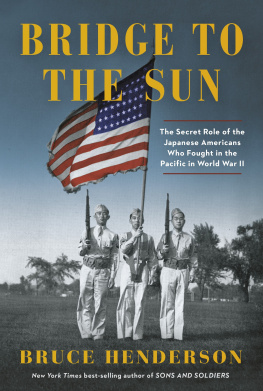
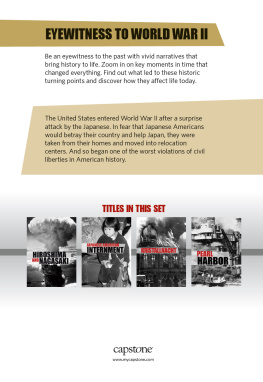
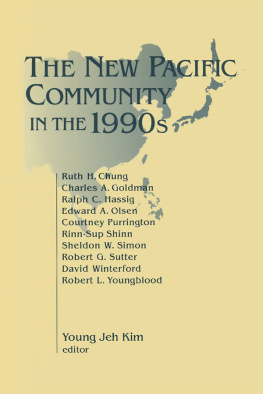
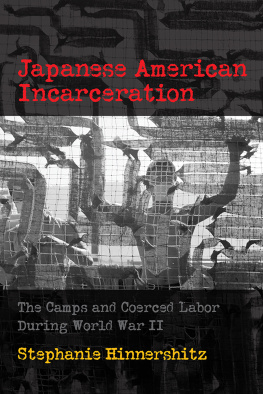
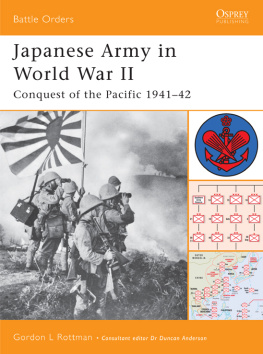
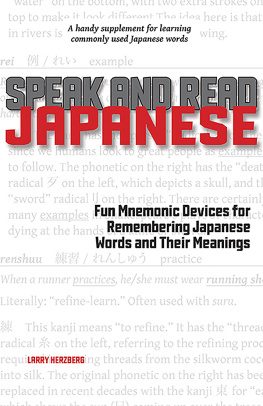
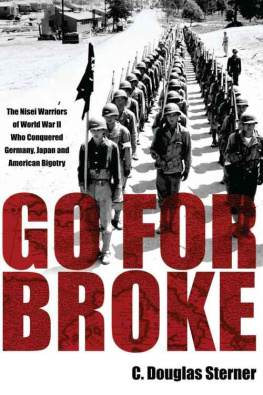
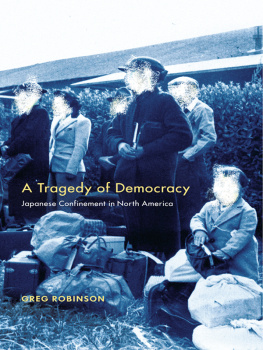

 This book is printed on acid-free paper.
This book is printed on acid-free paper.